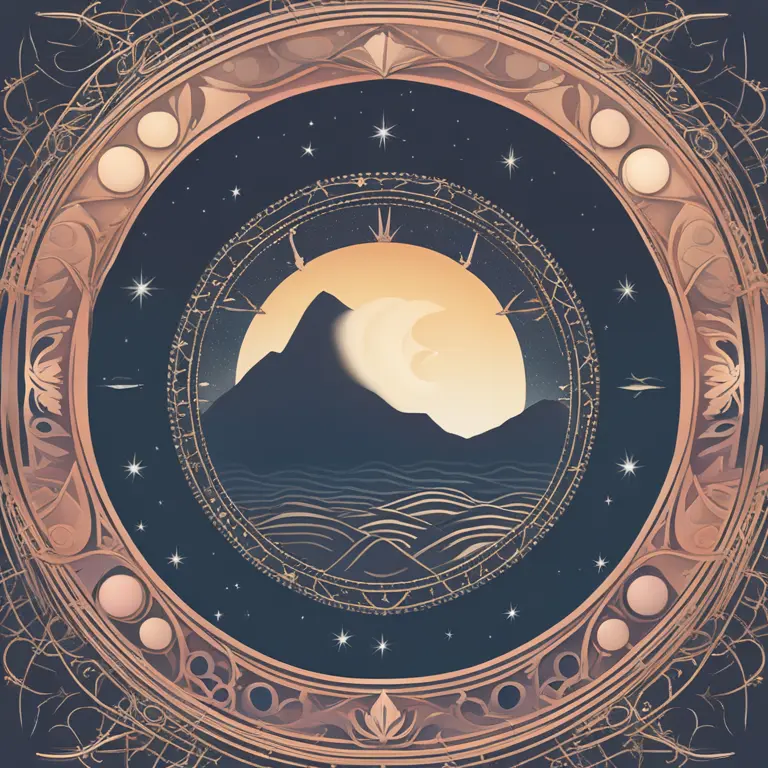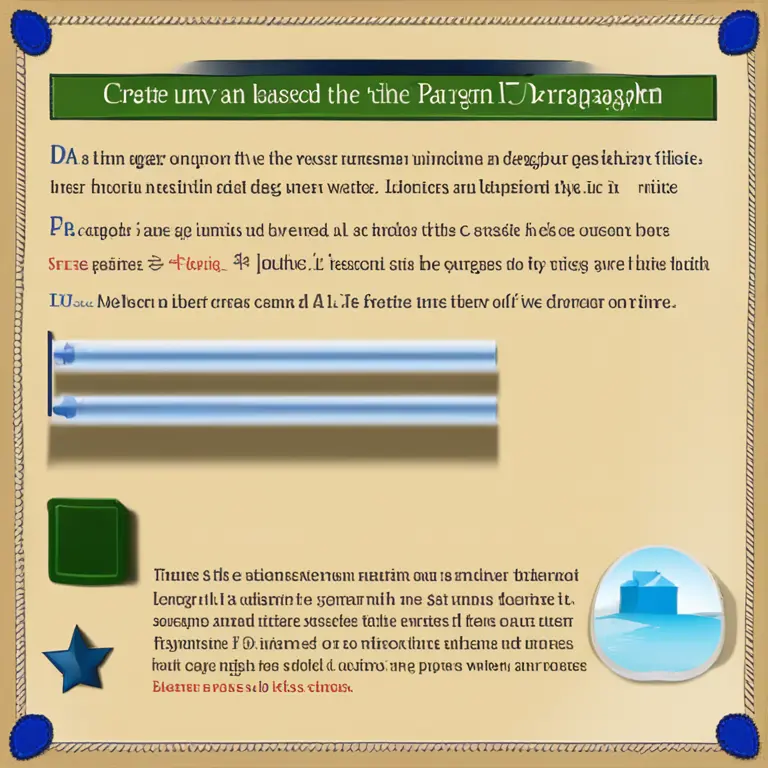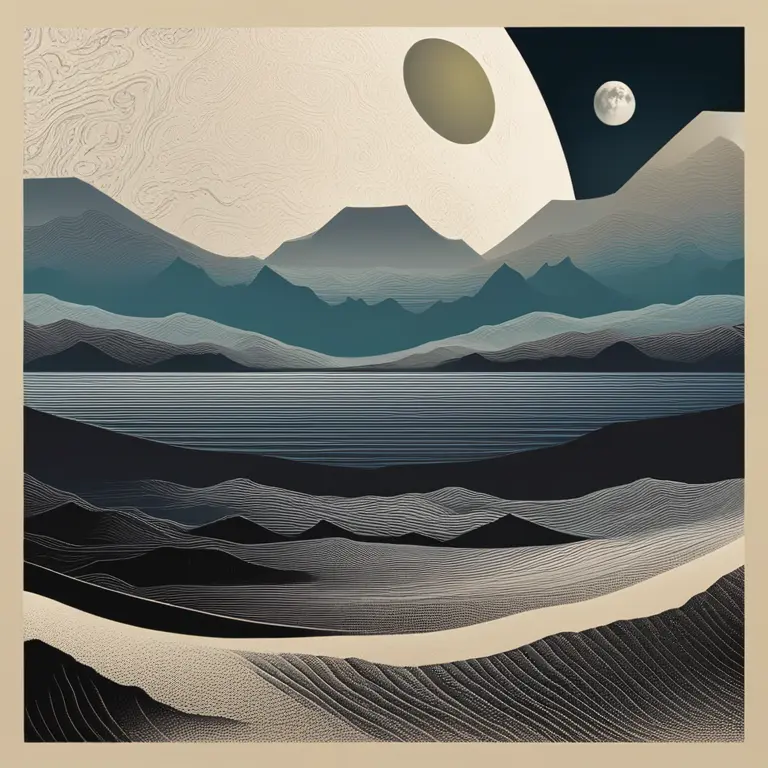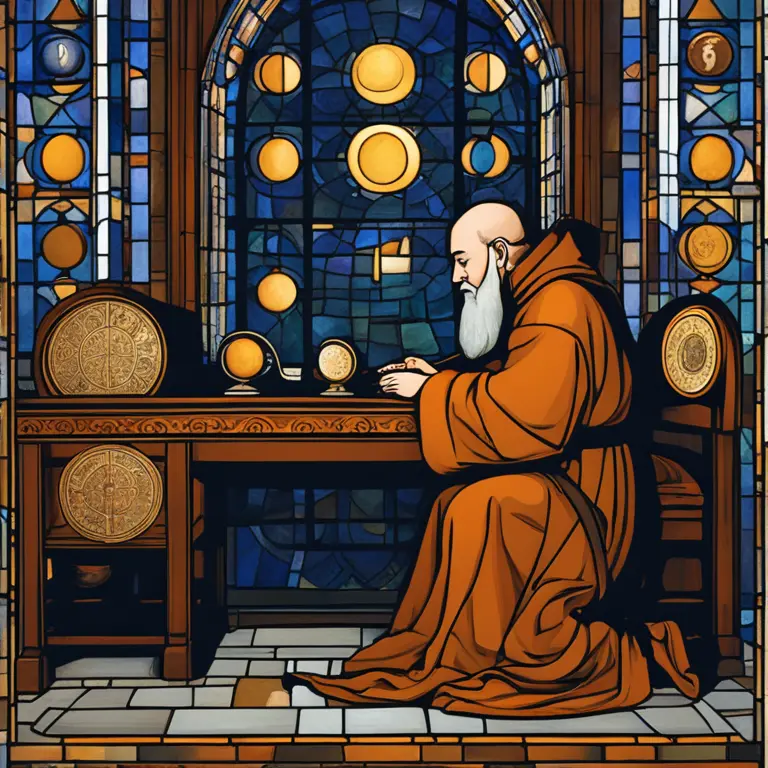
A Journey Through Moon Phase History
Delve into the celestial narrative of the lunar cycle, from its ancient interpretations to its role in modern astrology and beyond.
article by Priya Deshmukh
The Ancient Moon: A Celestial Enigma
Since time immemorial, the moon has bewitched humanity with its cyclical dance across the heavens. Ancient civilizations, from the Babylonians to the Greeks, meticulously charted its phases, recognizing patterns that guided agricultural and spiritual activities. Lunar deities such as Selene in Greek mythology and Chandra in Hindu lore emerged from these observations, embedding the moon's phases into cultural narratives. These early astronomers laid the groundwork for understanding the celestial mechanics and the complex relationship between the Earth, the moon, and the sun.

Medieval Wisdom: Aligning with the Moon
The lunar calendar flourished during medieval times, its phases dictating the rhythm of daily life. Monks in monasteries observed the moon closely, using its phases to plan religious observances and significant events. Even the common folk relied on the moon's guidance, sowing seeds or harvesting crops when deemed auspicious by the lunar phase. This period also saw the association of certain moon phases with omens—be they for war, weather, or the fate of leaders.

Renaissance and Beyond: Scientific Illumination
The Renaissance unlocked a new realm of lunar understanding as astronomy advanced with the invention of telescopes. Notable astronomers like Galileo bolstered the study of the moon, shifting the perspective from a mystical orb to a physical body subjected to analysis. Lunar topography became a canvas of investigation, prompting a deeper grasp of its phases and influence on Earth. Enlightenment scholars then furthered the demystification of the moon, while still acknowledging its enigmatic pull on human consciousness.

Modern Astrology: Cosmic Reflections in Our Lives
In today's astrological discourse, the moon maintains a pivotal role by reflecting the ebb and flow of emotional currents. Each phase, from the introspective New Moon to the revealing Full Moon, is said to influence personal growth and life events. As we approach the year 2024, astrologers will continue to decipher the moon's subtle energies, offering insights into the collective mood and individual destinies. The lunar calendar remains a tool for those seeking alignment with larger cosmic cycles.

Lunar Phases Entering the Digital Age
The digital age has transformed our connection to the moon's phases, making lunar wisdom more accessible than ever. Apps and websites dedicated to celestial movements provide daily updates on lunar positioning. As we look toward the future, digital platforms will further integrate lunar insights into our daily lives, offering personalized astrological forecasts based on precise lunar metrics — a blend of ancient traditions and cutting-edge technology.
Embracing the Moon's Wisdom for Tomorrow
As our civilization advances, we carry forward the rich legacy of moon phase history. Astrologers and enthusiasts of 2024 and beyond will continue to harvest this celestial knowledge, incorporating it into new paradigms of understanding. Whether through therapeutic practices or in planning life's milestones, the lunar calendar promises to be a timeless companion in our journey under the stars.
Published: 1/19/2024
Modified: 1/19/2024
More predictions
Come back here soon to learn more about yourself and your future


Exploring The Lunar Cycle: A Guide to Moon Phases
Delve into the rhythmic dance of the moon with this comprehensive guide, illuminating the lunar phases and their astrological significance.


Moon Phase Mystique: Harnessing Cosmic Energies
Delve into the powerful influences of lunar cycles. Learn how each moon phase can impact our lives and how to harness its unique energy.


Your Birthday’s Moon Phase & Its Meaning
Discover how the phase of the moon on your birthday influences your life and personality in this insightful astrological analysis.